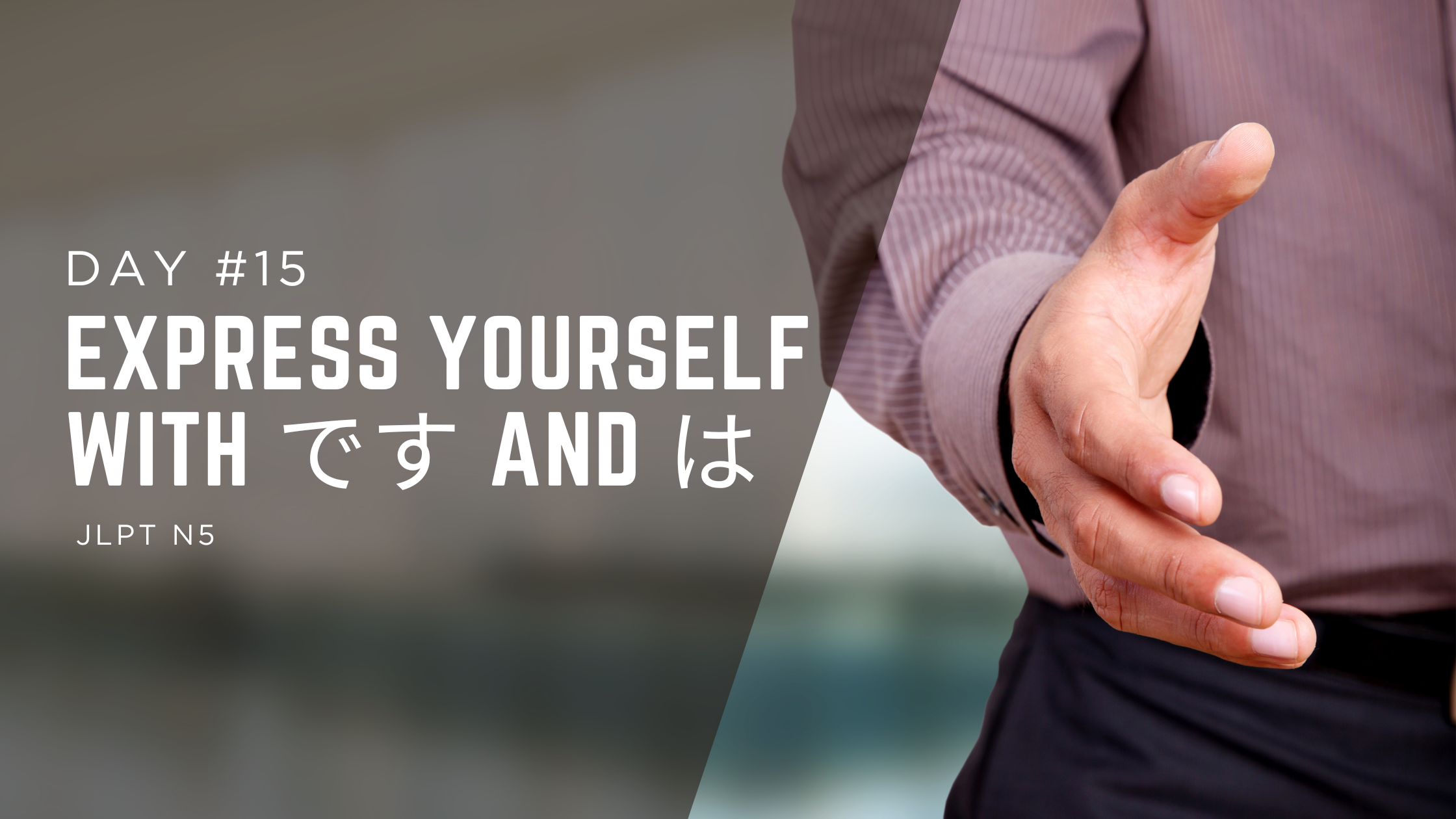Hello! Welcome to Day 15 of your Japanese learning journey!
Today, we’re exploring how to use です (desu) to express yourself, like sharing your name, job, or feelings.
This is super useful for daily life, such as introducing yourself to new friends or chatting about your day. You’re making fantastic progress in Japanese!
Keep practicing, and you’ll sound natural soon. Let’s dive into fun words and sentences!
Vocabulary
| Japanese | Reading | Meaning |
|---|---|---|
| わたし | watashi | I, me |
| なまえ | namae | Name |
| げんき | genki | Fine, healthy |
| せんせい | sensei | Teacher |
| がくせい | gakusei | Student |
| にほん | nihon | Japan |
| ひと | hito | Person |
| ともだち | tomodachi | Friend |
| しごと | shigoto | Job, work |
| すき | suki | Like |
Grammar Point
The word です (desu) means “is/am/are” and makes sentences polite and friendly.
Use it after a noun to describe something or someone.
The particle は (wa) marks the topic, like “as for” in English.
For example: わたし は がくせい です (watashi wa gakusei desu) means “I am a student.”
Another example: わたし は げんき です (watashi wa genki desu) means “I am fine.”
Use です to share facts politely.
Example Sentences
- わたし は がくせい です。 (watashi wa gakusei desu.)
- I am a student.
- なまえ は やまだ です。 (namae wa yamada desu.)
- My name is Yamada.
- わたし は げんき です。 (watashi wa genki desu.)
- I am fine.
- せんせい は にほん の ひと です。 (sensei wa nihon no hito desu.)
- The teacher is a Japanese person.
- わたし は いぬ が すき です。 (watashi wa inu ga suki desu.)
- I like dogs.
- しごと は せんせい です。 (shigoto wa sensei desu.)
- My job is a teacher.
- わたし は にほん が すき です。 (watashi wa nihon ga suki desu.)
- I like Japan.
- ともだち は げんき です。 (tomodachi wa genki desu.)
- My friend is fine.
Practice Activity
Write five sentences using です to describe yourself, like your name, job, how you feel, or something you like.
For example: わたし は げんき です。
Say them aloud to practice speaking. Try sharing one sentence with a friend or teacher to build confidence!
Conclusion
Great job learning です to express yourself in Japanese!
You can now say who you are, what you like, or how you feel, like わたし は ともだち が すき です.
Try using these sentences in real life, maybe with a classmate. You’re speaking Japanese so well! Keep going, and we’ll learn more tomorrow!



